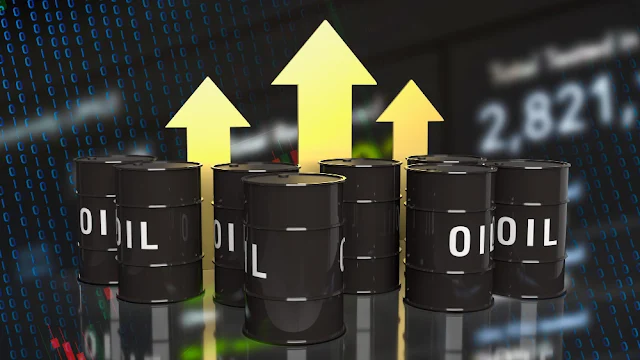 |
| Rising oil prices and looming threat of inflation |
The price of crude oil has been rising for the past few days with that of WTI going above $90 mark for the first time since November, last year.
As of 18:00 GMT on Friday, the prices of two benchmarks, WTI and Brent were at $87.51 and $90.65 respectively.
The price of oil went up when Saudi Arabia and Russia announced that their production cuts would be extended until the end of the year, causing understandable anxiety over the supply; the two bigwigs of the OPEC+ have collectively cut the output by 1.3million bpd.
The development has already created panic in the markets, especially at a time when the West struggles to keep the inflation at bay, but to no avail.
The airline industry, for instance, has already voiced their concerns: it goes without saying that higher oil prices mean higher fuel costs for the industry and the price of tickets will go even higher than where they currently stand at - hardly a catalyst for the struggling industry.
Despite the real threat of inflation looming over the entire Western economy, the Western nation do not appear to be having any tool at their disposal to bring down the oil prices, apart from their displeasure being made known to Saudi Arabia that is still an ally.
Even the US appears to be just blowing hot and cold over the issue, sometimes issuing thinly-veiled threats.
In the past, the US used to release crude oil from its SPR, Strategic Petroleum Reserve, to bring down the prices. This time, however, it is easier said than done; the SPR is at an all-time low and the US needs to fill it up rather than releasing stocks from it.
In short, the US has run out of options in the wake of latest rise in oil prices, prompted by the production cuts.
The US is facing major a dilemma: on one hand, the prices at pumps back home are rising that is politically suicidal for the Biden administration; on the other hand, the US cannot afford to further strain its relationship with the Kingdom, the old, trusted ally.
The widely-reported warming ties between Israel and Saudi Arabia with the full blessings of the Biden administration adds another political dimension to the energy debate. In short, the US cannot read the riot act against the Kingdom in the current circumstances.
Since Russia and Saudi Arabia see eye to eye on the issue of cutting down on the production, the US has been forced to play the enviable role of a passive spectator with ever dwindling strategic options left at its disposal.
The US crude stocks, meanwhile, fell substantially during the past week, according to the API, American Petroleum Institute. In addition, the latest Chinese economic data shows its manufacturing activities are becoming stable, defying the doom and gloom predicted by some analysts in the West.
This means the demand for oil may remain strong for the foreseeable future that in turn could push the prices even higher. It's high time the West got a grip on the development before it evolves into a serious economic crisis again fueled by rampant inflation.







